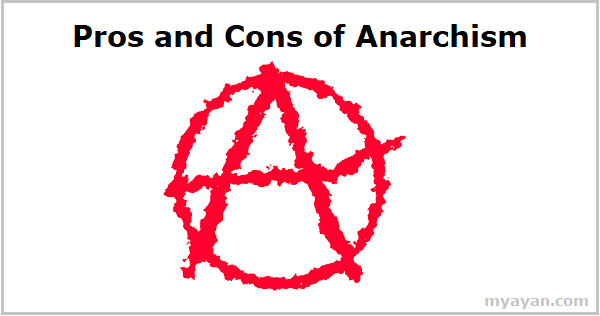Anarchism envisions a society in which everyone is free to act whatever they like, as long as they don't restrict the freedom of many others. This idea is called anarchy, which is a lack of authority.
Anarchy is a state without enforceable international humanitarian law, and disagreements are resolved by violence and disorderly means. Violence is commonplace in anarchic societies because it happens every day. Anarchy is also related to some negative energy as well as some positive.
Here are some benefits of anarchism.
Taxes are drastically reduced or nonexistent in anarchic societies. There would be no one to steal a sizable amount of their income since there would be no government.
There is a huge wealth gap in several nations worldwide. Most of the population typically has little money and frequently finds it difficult to purchase the necessities for their daily existence. At the same time, a small elite controls practically all of the country's assets. It causes widespread poverty and starvation around the world. Without restrictions restricting large distribution, an anarchic system is likely to prevent such a high level of inequality.A tiny portion of the wealthy would be compelled to give up the bulk of their wealth to significantly raise the standard of life for most of the populace.
Released in 2018, the Echo Dot is a smart speaker featuring$39.99.
Apple cider vinegar gummy vitamins from Goli, 60 counts, are$18.98 Amazon ads.
Anarchy can lead to a far higher level of freedom for the general public.
People have far more flexibility to experiment with new things and behave in ways that suit them since they must follow no government-imposed rules and laws.
In anarchy, everyone would have the capacity to establish new social standards that would benefit the majority of people rather than simply a tiny minority of people as they do now. People have been educated to work a thankless job in today's culture to survive. Nevertheless, workers never get affluent; instead, businesses generate enormous profits.
Some drawbacks of anarchism are the following.
Under a state of anarchy, it's possible that people would lose the idea of owning things. For instance, if you already own a home, there is a chance that land rights would be disregarded under anarchy and that others will take your home since no one can stop them.
One drawback of anarchy is that there won't be any security to shield you from assaults. Even though many individuals despise law enforcement personnel completely, it must be admitted that having an officer around offers a considerably higher level of safety than not having one.
Fittest is often associated with anarchy. It implies that those who have always been the strongest can rule society while the weakest among us will ultimately perish.
The Government Can Only Maintain Enough Public Education Resources When It Can Spend Enough Taxpayer Money. There is a chance that the total level of education may decline dramatically in authoritarian systems, whether or not there are tax regimes in place. It might lead to several unfavorable results in their everyday lives.
Investors have a lot of trouble in nations with chaotic regimes. Imagine you are thinking about investing in a nation with a lawless administration. You will likely have to worry about being kicked out of these countries if you choose not to participate.
Conclusion
As a result, anarchy would severely reduce total investment levels inside the nation. The rate of unemployment might therefore rise sharply.

Due to several high-profile violent incidents, such as riots, killings, insurrections, and acts of terrorism carried out by certain anarchists and constantly unfavorable media representations, anarchists have frequently been regarded as dangerous and violent.
Moral arguments receive much attention in anarchism since ethics are important to the anarchist theory. Anarchism differs from anarcho-capitalism and other forms of economic libertarianism in that it strongly focuses on anti-capitalism, equality, and the expansion of community and individuality.
Insecurity is a key implication of anarchy since no state can be assured of security under a system of rival independent nations. States may respond in a way that protects them against possible risks due to this unstable environment. States' actions are determined by their capacities and purposes.